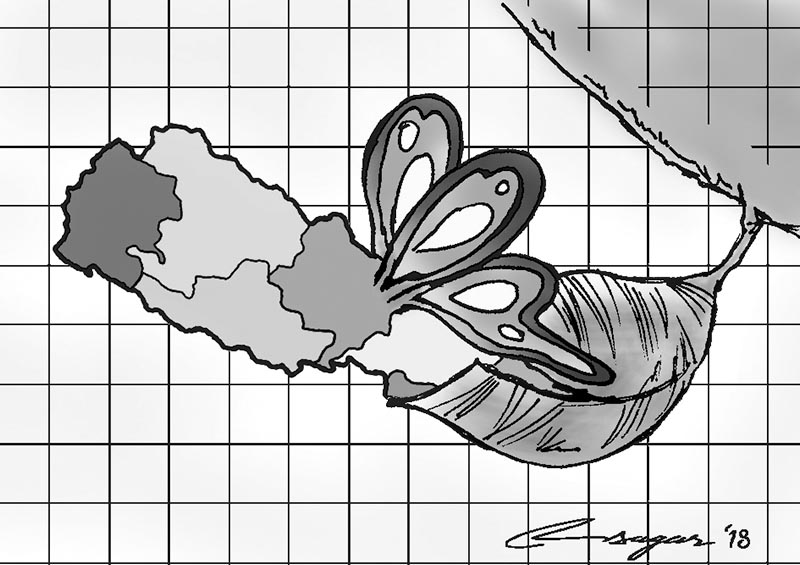Nepal urged to focus on sustainable, irreversible development targets
Kathmandu, July 4
Nepal, as a least developed country of Asia Pacific region, has been urged to look into natural and human hazards caused by the nature-induced disasters, conflicts; socio-economic vulnerability and capacity constraints in both infrastructure and institutional fronts to achieve the Sustainable Development Goals (SDGs) by 2030.
Presenting a recent report titled ‘Asia Pacific Countries with Special Needs Development Report’ of United Nations Economic and Social Commission for Asia and the Pacific (UNESCAP) in National Planning Commission (NPC) — the apex planning body of the government — Yusuke Tateno, economic affairs officer of UNESCAP, said that every country has their special needs for development. However, in Nepal’s case, major bottlenecks are witnessed in infrastructure and institutional capacity and the vulnerability is high as there are chances of nature- and human-induced disasters.
Citing an example of vulnerability, Tateno said that Nepal was eligible to be graduated to the league of developing nations early this year, however, the country deferred it till next review in 2021 as socio-economic vulnerability is still high in Nepal. “While achieving the development targets, we must focus on sustainability and irreversibility,” he reiterated.
In terms of conflict risk, Nepal is positioned among high-risk countries. Nepal had scored 5.1 in disaster risk index, in which zero is less risky and nine is very risky. Countries which scored zero to five are medium-risk countries, five to 6.5 are high-risk countries and above 6.5 are very-high-risk countries.
Citing an example of border blockade, the report has stated that the event dampened economic activities and inflation jumped to double digits. “The eruption of conflict in such contexts can exacerbate the already formidable structural impediments to development.”
The report has highlighted that the peace is basic component for achieving the development goals. “Without peace, development targets cannot be achieved and without development it is difficult to make peaceful society,” the report stated. “In Nepal, the decade-long internal armed conflict that had a significant rural dimension impeded rural development outcomes.”
The report also underscored the need of concrete efforts from international level to tackle conflict and sustain peace as conflict and subsequent violence can evolve to levels that spill over to neighbouring countries. It has stressed on the need to take on an international dimension, especially given the interconnected and interdependent nature of the global economy. Indeed, a conflict in one country can have consequences not only for its immediate neighbours, but even in another parts of the world.
The report has said that Nepal has been consistently coping with socio-economic vulnerability. “In Nepal, gradual and consistent declines can be observed evenly across the dimensions of coping capacity and socio-economic vulnerability.”






